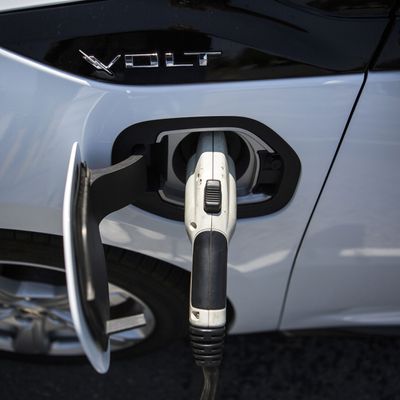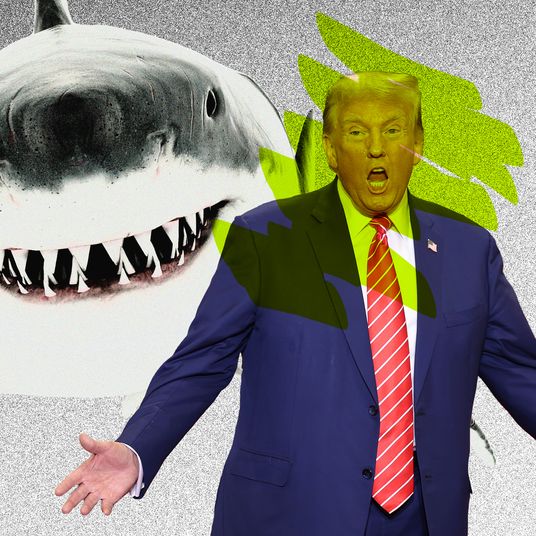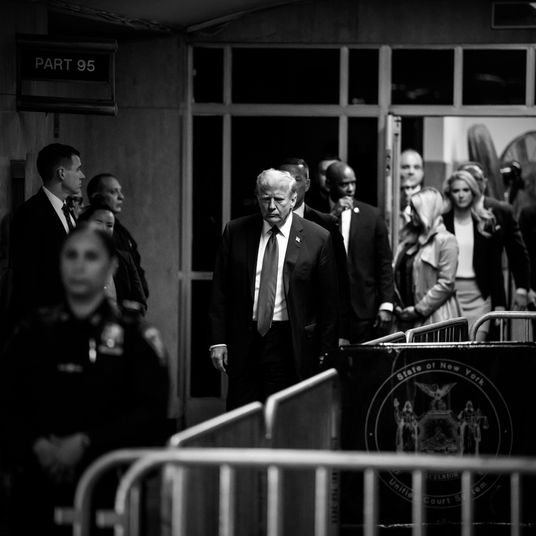
The Republican Party has always been a stalwart supporter of government intervention in the economy. For decades, it has fought to deliver billions in subsidies to (highly profitable) agricultural giants and fossil fuel companies, and to give the Pentagon a budget so large, big government defense projects now account for 10 percent of all manufacturing output in the United States.
More subtly, the party has insisted on shaping the U.S. tax code around the principle that the government has a responsibility to privilege certain forms of economic activity over others. For example, congressional Republicans believe that Uncle Sam should tax the passive income of wealthy investors and landlords at a much lower rate than the labor income of ordinary workers, in order to compensate the former for their brave “risk-taking.” Thus, the Trump tax cuts delivered the lion’s share of its benefits to Americans who don’t need to work for a living.
But while Republicans believe that the state has a sacred obligation to inflate the profits of weapons manufacturers, oil drillers, and Monsanto (along with the take-home pay of Americans who own large shares of such companies), the party also believes that the government mustn’t intervene in the economy to aid the indigent, or raise wages, or protect consumers, or preserve the environment.
The principle uniting these two positions — that government should work for the benefit of individuals and industries that donate to the Republican Party, no matter the cost to ordinary people or the natural resources on which they rely — is politically indefensible. So, instead of trying to defend their actual vision for how government should intervene in the economy, conservatives have (historically) insisted that they oppose all forms of government intervention, and support free enterprise, and then define policies that aid working people or protect the environment as “government intervention,” and interventions that aid their donor class as “pro-free enterprise.”
And this gambit has worked reasonably well for Republicans — in part, because liberals tend to take the bait, and respond to conservative economic arguments by explaining why a “free market” economy is undesirable (instead of explaining that conservatives desire nothing of the kind).
But Donald Trump never got the memo on the GOP’s rhetorical strategy for rationalizing oligarchy (and wouldn’t have read it, if he did). As a great beneficiary of the kinds of welfare Republicans revere — and a great admirer of autocratic regimes — few aspects of American conservatism are more alien to Trump than its feigned reverence for small government. And so, the Republican president routinely vows to punish private firms for making business decisions he disapproves of and to reward his favorite industries with giant federal subsidies.
All this puts the White House’s conventional conservatives in an impossible position. They’re still duty-bound to rationalize the Trump administration’s myriad attacks on climate regulations and consumer-finance protections. But they no longer (even halfway) credibly appeal to the sanctity of the free market when doing so.
Their solution: Embrace cognitive dissonance so severe, your defenses of the free market gradually become attacks on reason itself.
Or at least, this was the strategy White House economic adviser Larry Kudlow recently deployed when making the case for the president to end federal subsidies for electric cars by executive order.
Last week, after learning that General Motors would be shuttering factories in states that had voted for him, Donald Trump tweeted, “Very disappointed with General Motors and their CEO, Mary Barra, for closing plants in Ohio, Michigan and Maryland. Nothing being closed in Mexico & China. The U.S. saved General Motors, and this is the THANKS we get! We are now looking at cutting all @GM subsidies, including for electric cars.”
Here, the president explicitly threatened to use public policy as a means of disciplining a corporation that had defied his will. Here’s how Kudlow defended Trump’s (almost certainly unconstitutional) proposal on Monday:
President Trump’s top economic adviser said the administration is looking to eliminate subsidies on electric cars, a move that could hamper the auto industry’s push to broaden the market for battery-powered vehicles.
“As a matter of our policy, we want to end all those subsidies,” Lawrence Kudlow said on Monday. “And by the way, other subsidies imposed during the Obama administration—renewables, etc. We are a free market.”
You see, the Trump administration doesn’t want to end subsidies for electric cars because it is so beholden to oil interests, it actually values Charles Koch’s short-term profits over human civilization’s long-term survival. No, the president who refers to himself as “Tariff Man” — and, just last week, explained that he wants to end electric car subsidies because they benefit a company he is mad at — opposes such subsidies out of a principled commitment to free enterprise.






























